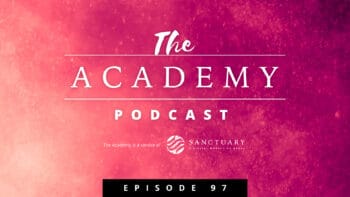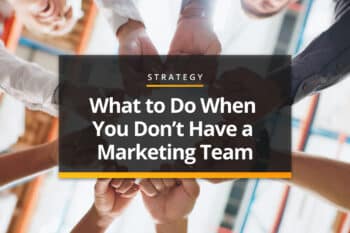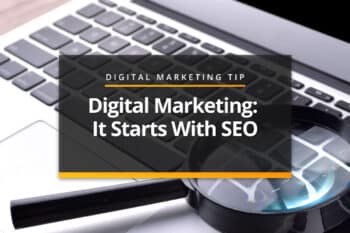People are continually asking my opinion about the Yellow Pages. My first question is “Which Yellow Pages”? Are you talking about the book that shows up each year (that ends up in my recycle bin) or are you asking about YP.com, Superpages.com, Switchboard Yellow Pages, Yellowbook.com, or even some mutant local yellow pages site like the one provided by our local newspaper.
What exactly are you buying when you buy the yellow pages?
In my local area, the Yellow Pages means YellowPages.com or YP.com. They have an army of people with the sole purpose of convincing you that they’re the perfect choice to build your website (seriously?) and market your business online. Their employees go through extensive training on how to convince you that if you don’t stick with “old reliable” that you’ll be lost to the world.
The problems with The Yellow Pages:
The Yellow Pages is a machine that’s built to sell. But what they don’t tell you is that their influence is waning… and they know it. That’s why they’re being so aggressive with their sales and marketing. It’s the last battle charge before they get mowed down by the conquering army.
While there is some benefits to being listed on any Yellow Pages site (which I’ll address in the most fair and honest way possible later in this post) what they don’t tell you is that there are better and more effective ways to spend your marketing budget. The Yellow Pages is NOT an internet marketing strategy. The Yellow Pages is NOT your savior.
Problem #1: Fighting the 800 pound gorilla.
What your local Yellow Pages rep doesn’t want to tell you is that people don’t type in YellowPages.com to find what they’re looking for online. Google rules the online world. After that we have the Yahoo and Bing search engines who own a portion of the pie and then everyone else falls within about 6% of the remaining traffic. So, where would you focus your money and energies? (Thanks to this site for the beautiful graphic and where you can read more about how the Bing search engine is competing.)
Problem #2: Jumping some really high hurdles.
The Yellow Pages is a separate website, therefore if people are not going directly to the site and doing a search, then it too has to be found on Google, Yahoo or Bing. The problems here are obvious for if the Yellow Pages does actually show up for a relevant search, the person searching first has to take action to click on that listing. (Hurdle #1) If this is the only way that you’re found online you’ve immediately lost a huge chunk of your potential customers. If they actually click on a link they’re likely going to arrive at a page that looks like the image to the right.
Could there be any more distractions here? I mean, why is there a picture of a butt on a page focused on a search for local auctions? At this point you have to be found AGAIN (Hurdle #2) amongst all your competition again. Not to mention ads, links (and pictures of butts).
Problem #3: Big Hurdle #3.
So lets say they find the Yellow Page on Google, they click through to the Yellow Pages, they wade through the mess of information and distractions on the page and they find you in the sea of your competitors. They still have to click again and they’re STILL not to your website!
At this point you need to have an optimized listing that shows a link to your site. Granted, if all they want is a phone number then they can probably find what they’re looking for. But even that’s not guaranteed.
I’ve had clients that have the wrong business name and completely wrong information on their listing and without some serious TLC (and spending), your Yellow Pages listing does nothing to sell you. The image to the right shows an individual listing for a business and, although it is called out on the left in light blue, this business page still has more advertising, paid links from competitors, additional featured competitors and many, many more distractions.
Problem #4: It’s Advertising. When you stop paying, you’re GONE.
Most business owners (including myself) love to make investments in their business. Unfortunately most advertising is not an investment unless you have a system for maximizing the lifetime value of a customer. The simple fact is that The Yellow Pages is advertising that is not a very good investment. The moment you stop paying the piper, you’ve fallen into the abyss even further.
The Solution:
Have a well rounded internet marketing strategy that’s focused on Google — specifically the Google Organic (FREE) listings. Backtracking to the beginning of our search journey, would you not want to be the business listed on the first page of Google Search for what you do? (See screenshot to the right that shows local searches for auctions)
Getting positioned on the first page of Google is ideal:
- Once you get listed there for what you do, it’s FREE for as long as you can maintain that position.
- Google provides a direct link to your website.
- Google will sometimes include contact information and rating directly within your listing on the page.
- Google listings and other listings on search engines can provide traffic regionally.
What the Yellow Pages is good for:
I know that Yellow Page representatives will see this post and cry foul. So I’ll throw them a bone. I’ve said that YP is actually doing some good things recently. A Yellow Pages listing is good for something but I wouldn’t pay a lot and I definitely would not make it a large part of your marketing budget.
- They are doing a good job positioning their categories within relevant Google searches. The example I gave above positioned the Yellow Pages Auction category first in the organic listings.
- A Yellow Pages listing is good for a “citation”. This is essentially a listing for your business somewhere on the internet. It shows that you’re a real and active business. This can figure into your organic website rankings but it takes hundreds of citations to make a difference and Yellow Pages is just one.
- Yellow Pages CAN provide some low level traffic to your website. I have clients that still advertise on the Yellow Pages and I’ve seen the actual stats. There are real “clicks” every month. But it’s a miniscule percentage of their overall website traffic. It’s just one small part of a robust internet marketing strategy.
Most Popular Articles

Seeing Favicons in Your Google Search Results? Here’s Why…
Have you noticed anything different in your Google Search results lately? Google added tiny favicon icons to its organic search results in January. It was…

Business Growth and Digital Marketing News & Tips 11-17-24
Are you encouraging and rewarding innovation? Lee Cockerell is the former Executive Vice President of Operations at Walt Disney World. A lover of traditional red…

Business Growth and Digital Marketing News & Tips 11-27-24
A culture of gratitude "Feeling gratitude and not expressing it is like wrapping a present and not giving it." – William Arthur Ward Beyond being…








